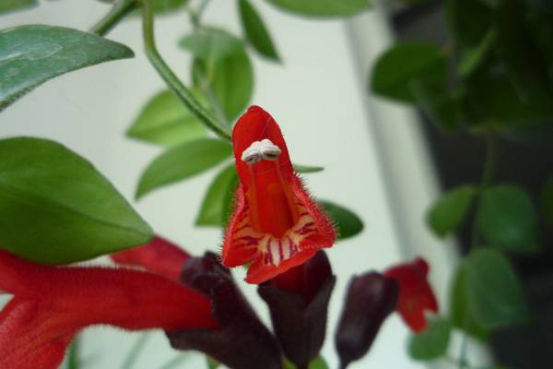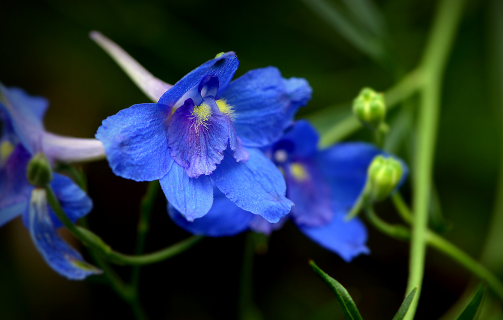Matters needing attention in planting Rhizoma Anemarrhenae
Anemarrhena anemarrhena, also known as Mao Anemarrhena, is a perennial herb, which is planted all over our country and has strong adaptability. It has the function of treating febrile disease, high fever, cough, constipation and so on. It is a very good gunpowder. The main producing areas of Anemarrhena anemarrhena in China are Hebei, Shandong, Shaanxi, Liaoning, Gansu and Heilongjiang. So what problems should we pay attention to when planting Rhizoma Anemarrhena? Let's follow the editor to learn about it.

1. Soil
Rhizoma Anemarrhenae does not have high requirements on the planting environment, but generally planting Anemarrhena anemarrhena wants high yield, so we also need to pay some attention to the selection of planting land. Generally, the planting should be in the sunny zone, and it is better to be the sand with convenient drainage and watering. The soil is rich in humus and moderate acid, alkali and poison is the best choice.
2. Planting time
The time of planting is also a problem that we need to pay attention to, because the climate of different regions of our country is different, so the time of planting Anemarrhena anemarrhena will change. But Anemarrhena anemarrhena can be planted in spring and autumn, and when the soil temperature reaches about humidity, it can be planted. Spring sowing is best in mid-April, while autumn is best in September or October, and the planting time is reasonably adjusted according to the temperature in different areas.
3. Close planting
The planting density has a great impact on the later field management and the yield of Anemarrhena anemarrhena, not the denser the better. So what is the best planting density? We need to decide according to the fertility of the soil and the topography of the planting site, usually the row spacing is 30 cm and the plant spacing is 20 cm.
4. Fertilizer and water
The fertilizer and water management of Anemarrhena anemarrhena will directly affect its quality and yield. In the seedling stage of Anemarrhena anemarrhena, we mainly use nitrogen fertilizer to irrigate with feces and urine, urea and water. In the later stage, potash fertilizer is the main fertilizer, combined with the use of nitrogen fertilizer, or compound fertilizer is used to replace nitrogen fertilizer, which can better promote the growth of Anemarrhena anemarrhena. At the same time, each fertilization should be combined with watering. In general, when there is no rain, it needs to be watered every 10 to 15 days, while continuous rainfall needs to be drained.
5. Bolting
The main purpose of bolting is to reduce the loss of nutrients, so that nutrients can be concentrated in the underground roots to promote root growth. When Anemarrhena anemarrhena bolting and flowering, we need to start bolting, that is to say, the buds of Anemarrhena anemarrhena should be removed reasonably, and some or all of them can be removed, so as to promote the growth of underground rhizoma. thus it can save cost and improve yield and quality.
The planting of Anemarrhena anemarrhena is actually very simple, because it is very adaptable to the environment, so many people will ignore some relatively simple problems when planting, and these problems will just affect the growth of Anemarrhena anemarrhena. The above is the notes of Anemarrhena anemarrhena planting that the editor has arranged for you, you can refer to it.
- Prev

Why don't lipsticks bloom?
1. Improper application of water and fertilizer. During the growing period, the amount of water and fertilizer of saffron is relatively large, but we should not apply too much fertilizer and water too much because we want it to grow faster, which will lead to too much nutrition, cause the flower stem to grow rapidly and affect the differentiation of flower buds. So it doesn't bloom or bloom less. There is too little water and fertilizer.
- Next

How to raise jade finches
Fertilizing jade finches in different periods, the types of fertilization will be different, for example, before planting, it is necessary to apply organic fertilizer and add an appropriate amount of compound fertilizer as base fertilizer; during the vegetative growth period, nitrogen fertilizer is needed, and the plant grows rapidly at this time. Timely supplement of nutrition can make the leaves large and thick green; timely supplement of phosphate and potash fertilizer
Related
- Fuxing push coffee new agricultural production and marketing class: lack of small-scale processing plants
- Jujube rice field leisure farm deep ploughing Yilan for five years to create a space for organic food and play
- Nongyu Farm-A trial of organic papaya for brave women with advanced technology
- Four points for attention in the prevention and control of diseases and insect pests of edible fungi
- How to add nutrient solution to Edible Fungi
- Is there any good way to control edible fungus mites?
- Open Inoculation Technology of Edible Fungi
- Is there any clever way to use fertilizer for edible fungus in winter?
- What agents are used to kill the pathogens of edible fungi in the mushroom shed?
- Rapid drying of Edible Fungi

